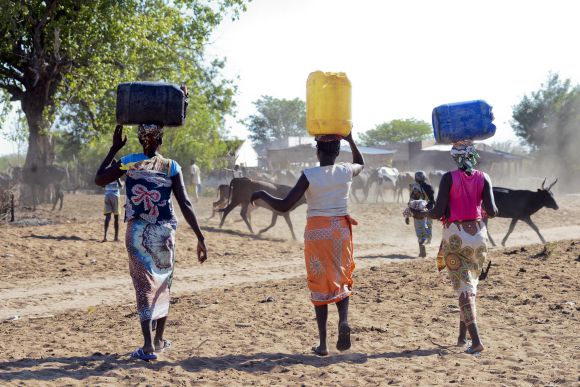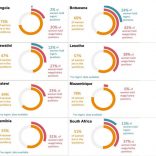Peace Corps to close country program in Mozambique
Women in Mozambique “far from equality” – report

Lusa (File photo)
Barefoot and wearing a blouse, Sara Furai, 17, abandoned her dream of becoming a nurse to bow to pressure from her parents to marry the best trader in Boavista, a town in Mozambique’s hinterland.
“I do not have time to fulfil my dream. I have to take care of my children and my home, and I do not have time to go chasing lost dreams,” she tells Lusa, breastfeeding twins from her marriage.
Sitting on the verandah of a tiny mud hut where she sells groceries while her husband is away at work, she talks about her life.
Her life reduced to the daily journey from home to the shop and back, Furai points out that this is not what she had dreamed of, the more so since the profits do not pass through her hands.
“I must ask for everything, even though there is money at home,” she says.
Furai is one of thousands of mothers of children in Mozambique’s central Manica province, central where premature marriages steal girls’ childhoods.
Increasing inequalities and failures to protect women’s rights, especially among the poorest, are major threats to the achievement of sustainable development goals, the October report from the United Nations Population Fund (UNFPA) states.
In over 140 countries analysed, women face inequality, not only financially, but also in access to health and the guarantee of sexual and reproductive rights, with consequences in almost every sense.
The report, “Worlds Apart: Reproductive health and rights in an age of inequality”, concludes that the situation weakens countries’ progress and threatens peace and global economic development.
The disparity, according to the document, has increased between 2008 and 2013, with the income of the richest 60% of the population growing faster than the poorest 40%.
In addition, out of the 142 countries covered by the index in 2016, in 68 the gender disparity is greater than in the previous year – with women more likely to be unemployed than men.
Maninha Madureira had a son in 2016, when she was 15 years old.
“I was never able to enrol again [in school] to continue my studies,” she told Lusa.
Her husband and former teacher, does not want to see her “working,” so she lives entirely dependent on the household’s only salary, which has to cover a growing family.
The routine is dominated by a single protagonist.
“The ‘papá’ [husband] does the shopping for the home. I usually get the daily ingredients for curry,” 16-year-old Estrela Murima, married now for three years, told Lusa.
Murima despairs of managing the home finances herself, despite having completed seventh grade, and says that her dream of working in a bank have been “swallowed up” by marriage.
The lives of these young people forced into premature marriages in central Mozambique and around the world can only change with concrete actions, the UNFPA report says.
These measures include respecting human rights, following international treaties and conventions, overturning discriminatory laws and regulations that prevent women from accessing information and services, and eliminating situations of inequality through public policies.
In Mozambique, half the women between the ages of 20 and 24 were married when they were still minors, 14 percent before the age of 15, according to data from the United Nations Children’s Fund.












Leave a Reply
Be the First to Comment!
You must be logged in to post a comment.
You must be logged in to post a comment.